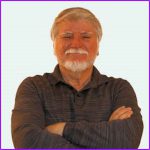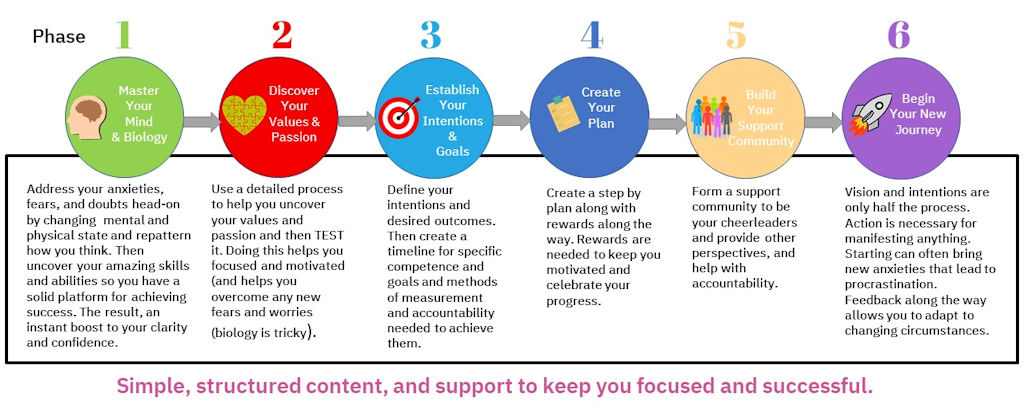We often look at highly successful people – whether they’re famous athletes, groundbreaking scientists, or self-made billionaires – and imagine they were destined for greatness from the start. We picture them bursting onto the scene fully formed, armed with extraordinary talent and an unwavering sense of purpose. But the reality is quite different. Even the most accomplished individuals had to start somewhere, often from very humble beginnings.
The truth is, you don’t have to be great to start – but you absolutely have to start to have any chance of achieving greatness or a high level of success. This simple but profound principle holds the key to unlocking your potential and achieving your most ambitious goals and intentions, whatever they may be.
The Myth of Innate Greatness
There’s a pervasive myth in our culture that greatness is largely innate – that the most successful people were simply born with rare talents or genius-level intellects that destined them for glory. But this belief is not only inaccurate, it’s actively harmful. It leads many people to talk themselves out of even trying to pursue their dreams, reasoning that if they’re not already displaying signs of extraordinary ability, there’s no point in making an effort.
The reality is that even those we consider prodigies or naturals had to put in years of dedicated practice and perseverance to reach the highest levels of achievement. Mozart may have shown an early aptitude for music, but he still spent countless hours studying, practicing, and honing his craft from a very young age. Michael Jordan, arguably the greatest basketball player of all time, was famously cut from his high school varsity team as a sophomore. He used that setback as motivation to practice even harder, often shooting baskets until late into the night.
The key insight here is that greatness is not a fixed, innate quality, but rather something that is developed through consistent effort and deliberate practice over time. And you can’t develop anything if you never start.
The Power of Small Beginnings
It’s easy to become paralyzed or deterred by the magnitude of our goals or the seeming gap between where we are and where we want to be. But the most reliable path to major accomplishments is to focus on small, consistent steps forward rather than trying to make a giant leap all at once.
Consider the example of Jeff Bezos. Before he founded Amazon and became one of the wealthiest people on the planet, Bezos was just another guy with an idea working out of his garage. He started small, initially just selling books online. But he remained persistent, continually expanded his vision, and kept pushing forward step by step. Those small beginnings eventually snowballed into one of the most valuable companies in the world.
Or take J.K. Rowling. Before Harry Potter became a global phenomenon, Rowling was a struggling single mother who wrote much of her first book in cafes while her baby napped. She faced multiple rejections from publishers before finally getting her break. But she started, she persevered, and the rest is history.
The lesson here is clear: Don’t let the gap between your current reality and your ultimate goals intimidate you into inaction. Focus instead on taking that crucial first step, however small it may seem.
Overcoming the Fear of Starting
If starting is so crucial, why do so many of us struggle to take that first step? Often, it comes down to fear – fear of failure, fear of embarrassment, fear that our efforts won’t be good enough. These fears are natural, but they can also be paralyzing if we let them control us.
The antidote to this fear is to re-frame how we think about starting. Instead of viewing it as a make-or-break moment where we have to get everything perfect, we should see it as an experiment – a chance to learn, grow, and gradually improve. The first draft of your novel doesn’t have to be a masterpiece. Your first attempts at public speaking don’t have to rival Martin Luther King Jr.’s “I Have a Dream” speech. Your first business venture doesn’t need to immediately rival Fortune 500 companies.
What matters most is that you begin, that you put yourself out there and start gaining real-world experience. Every misstep and setback become a learning opportunity, a chance to refine your approach and come back stronger. As the saying goes, “Failure is not the opposite of success, it’s part of success.”
The Compounding Effect of Consistent Effort
One of the most powerful aspects of simply starting and maintaining consistent effort is the compounding effect it produces over time. Just as compound interest can turn small, regular investments into a substantial sum given enough time, small daily actions in pursuit of your goals can lead to remarkable achievements.
Imagine two aspiring writers. The first is paralyzed by perfectionism and the fear that their work won’t measure up to their favorite authors. They spend years thinking about writing but never actually putting pen to paper. The second writer commits to writing just 500 words a day, no matter how imperfect. It may not seem like much at first, but over the course of a year, that adds up to 182,500 words – equivalent to two or three full-length novels!
Not only will the second writer have produced a substantial body of work, but their skills will have inevitably improved through consistent practice. They’ll have learned what works and what doesn’t, developed their unique voice, and be much closer to achieving their goals – all because they were willing to start and keep going, even when the individual efforts seemed small.
 This principle applies across all domains. Whether you’re trying to get in shape, learn a new skill, build a business, or achieve any other long-term goal, consistent small efforts will always outperform sporadic bursts of intense activity followed by long periods of inaction.
This principle applies across all domains. Whether you’re trying to get in shape, learn a new skill, build a business, or achieve any other long-term goal, consistent small efforts will always outperform sporadic bursts of intense activity followed by long periods of inaction.
Embracing the Journey
Another crucial mindset shift is to learn to embrace the journey rather than fixating solely on the destination. When we’re only focused on some idealized end goal, we can easily become discouraged by how far away it seems. But when we learn to find joy and satisfaction in the process of growth and improvement itself, we unlock a powerful source of ongoing motivation.
Take the example of someone learning to play guitar. If they’re only focused on being able to play like their favorite rock star, they’re likely to get frustrated by their slow progress and may give up. But if they can learn to appreciate the small victories – mastering a new chord, playing a simple song all the way through for the first time – they’re much more likely to stick with it and eventually reach high levels of skill. In fact, neuroscience studies indicate the we get small doses of dopamine (our motivation neurotransmitter) when we achieve small milestones; which further motivates us. And we lose motivation, when we get to the big goal.
So, the mindset of appreciating small victories allows you to derive satisfaction and build confidence from the very act of starting and making consistent effort, rather than tying all your self-worth to achieving some far-off goal. It turns the path to greatness into a series of rewarding challenges rather than a grueling slog.
Conclusion: The Power is in Your Hands
The beautiful truth about the principle that “you don’t have to be great to start, but you have to start to be great” is that it puts the power squarely in your hands. You don’t have to wait for permission, for perfect circumstances, or for some inherent greatness to reveal itself. You can choose to start right now, today, taking the first small step toward whatever goal or dream you’ve been harboring.
Remember that every great achievement, every success story, and every transformed life began with a single step. The Wright brothers’ first flight lasted only 12 seconds, but it changed the world. Apple started in a garage. Google began as a research project.
Your own first steps may feel small or insignificant, but they have the potential to lead to extraordinary places. The key is simply to begin, to take action rather than remaining stuck in endless planning or self-doubt. Embrace imperfection and taking action one step at a time.




 Together we will use a proven process for success
Together we will use a proven process for success

0 Comments